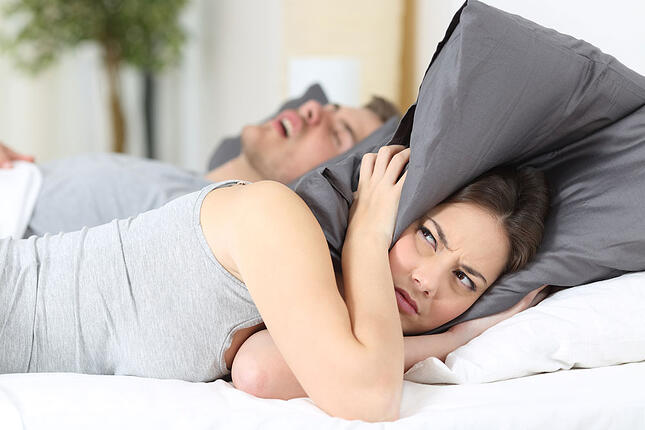News
When Snoring Gets Serious.
It doesn’t take long for regular old snoring to become quite annoying, particularly for someone who has to listen to it while trying to sleep. However, it is possible that that annoying snoring is actually indicative of a more serious health issue, which can be life-threatening.
One such condition is sleep apnea. It can cause someone to experience pauses in their sleep repeatedly through the night. You could wake up, gasping for air. This can occur when the weight of your neck and upper chest restricts the flow of air through your airways.
There are some basic and obvious signs that you may have sleep apnea. Snoring, feeling fatigued even after waking up, and constant irritability are some common symptoms. But there are other, more serious, symptoms that you should not ignore.
For example, did you know that untreated sleep apnea can lead to high blood pressure? When your breathing stops throughout the night, the walls of your blood vessels can get damaged. This reduces the ability for your body to regulate your blood pressure. Over time, this can cause a ripple effect for other, more severe issues, such as extreme sleep deprivation, obesity, stroke, and heart disease.
These are some serious health risks of sleep apnea that you cannot ignore. But there is treatment you can get to minimize these serious health consequences.
In addition to losing weight, and limiting caffeine and alcohol intake, you can also get a Continuous Positive Airway Pressure (CPAP) machine. Using a mask that fits over your face and a tube, the machine sends a gentle pressure of air to keep your airways open while you sleep. You will get more oxygen to your body, get a better sleep, and slow down any serious side effects of many poor nights’ sleep.
If you believe you could have a sleep disorder, make an appointment with your doctor right away. Take care of yourself, both while awake and asleep. It’s worth it.
Download the FREE Beginners Guide to Snoring and Obstructive Sleep Apnea.



